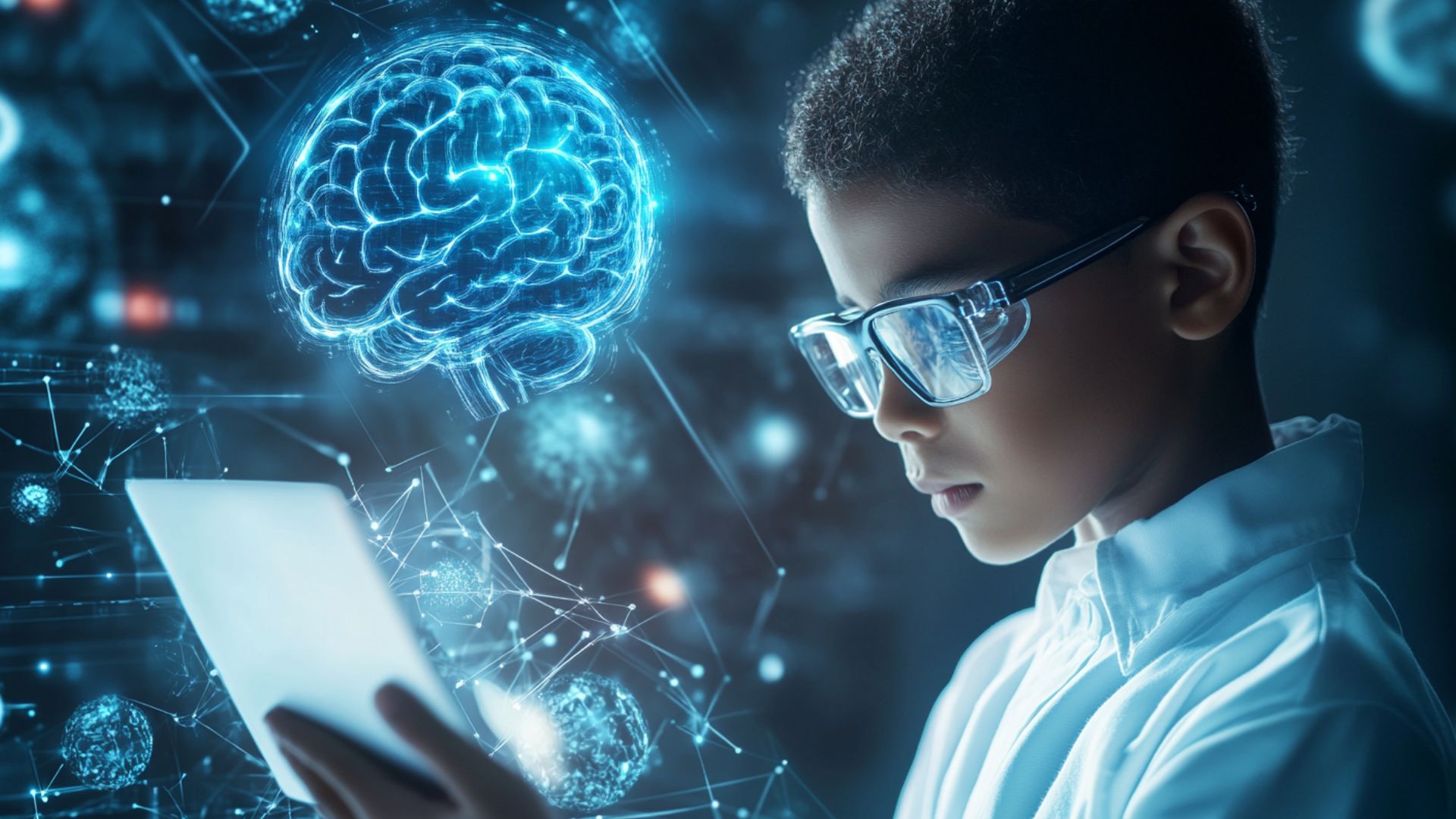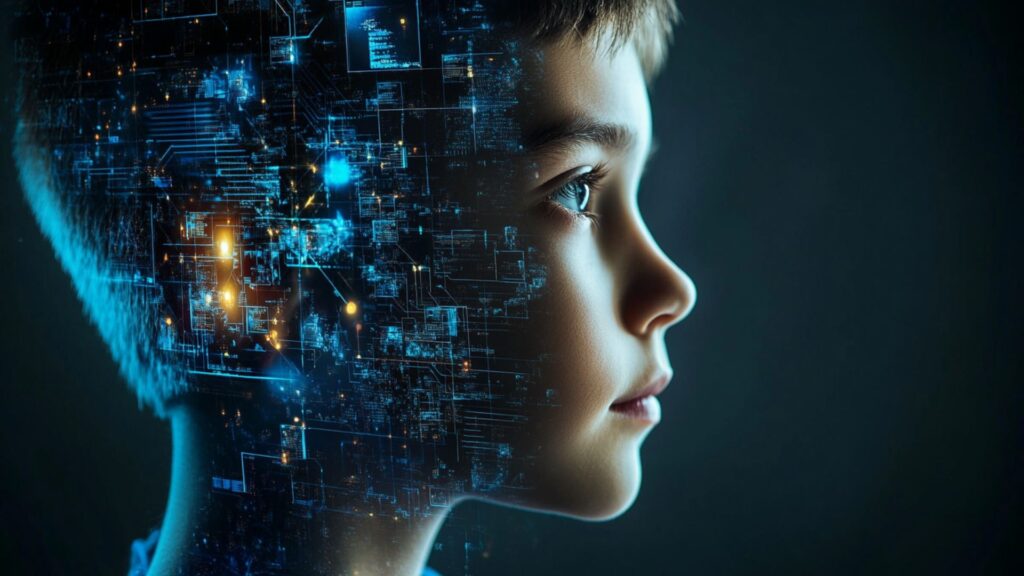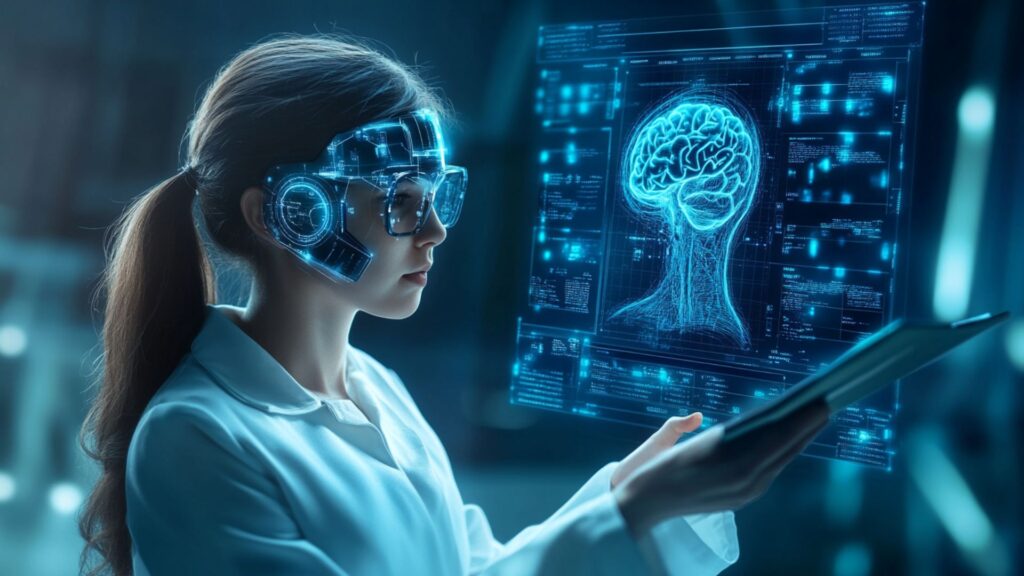AI in Education: How Personalized Learning is Changing Schools and Universities.

Artificial intelligence is revolutionizing modern education, offering capabilities that far surpass traditional teaching methods. These innovative technologies have significantly simplified and improved educational processes across all levels. AI provides tailored feedback to enhance student understanding, keeps learners engaged with responsive content, and enables educators to analyze data and track progress more effectively than ever before.
AI in schools improves outcomes by addressing diverse learner needs, supporting students with varying abilities and backgrounds. Universities leverage AI for customized courses and virtual tutors, while K-12 schools integrate adaptive platforms for real-time assessments. The result is a more inclusive and effective learning environment that better serves all students.
This article explores how AI transforms schools and universities, examining current tools and future potential for education. Discover how AI in schools is revolutionizing the learning experience for students and teachers alike.
Personalized Learning Technologies Transforming Classrooms
AI in schools is revolutionizing education through personalized learning tools that adapt to individual student needs. These technologies support adaptive learning, intelligent tutoring systems, and real-time progress tracking, creating tailored experiences for diverse students. AI school platforms adjust to individual learning styles and paces, significantly boosting educational outcomes.
Advanced algorithms analyze student performance data from quizzes, classroom interactions, and response times. Machine learning identifies each student's strengths and knowledge gaps, automatically adjusting content difficulty. Assignments match individual skill levels, and feedback arrives instantly to guide corrections. This personalization ensures no student falls behind while allowing advanced learners to progress at their own pace.
Leading AI tools transforming classrooms:
- DreamBox Learning. Adaptive math program for K-12 students that tracks progress in real-time and continuously adjusts lessons to maintain optimal engagement.
- Carnegie Learning's MATHia. It is an Intelligent tutoring system for algebra that uses knowledge tracing to build skills progressively, providing contextual hints when students struggle.
- Duolingo. A gamified language learning platform that adapts exercises through sophisticated algorithms while monitoring daily engagement.
- Squirrel AI. A Chinese K-12 system that mimics human tutors by detecting student confusion and automatically adjusting difficulty levels.
- Smart Sparrow. University-level adaptive platform that responds to student interactions to customize coursework dynamically.
- Zearn Math. Interactive lessons for elementary students offering contextual hints and step-by-step solutions while tracking mastery levels.
AI in schools dramatically improves learning outcomes. Students master concepts faster when the content matches their understanding. Motivation increases when challenges remain relevant and achievable. Individualized instruction reduces frustration for struggling learners while preventing boredom for advanced students.
Adaptive Learning Platforms and Software
AI-powered adaptive learning platforms are revolutionizing classrooms by adjusting educational materials to student needs in real time. Popular platforms, including DreamBox and Knewton, use sophisticated algorithms to analyze student performance and learning preferences, creating customized educational paths that improve knowledge retention.
These modern tools have fundamentally transformed the impact of artificial intelligence in education. Personalized pacing allows students to advance at speeds appropriate to their understanding. Mastery-based progression ensures deep comprehension before advancing to new concepts. Skill reinforcement targets specific weak areas with carefully designed exercises. Educational outcomes improve substantially, with studies showing up to 50% better knowledge retention with adaptive platforms.
Leading AI adaptive learning platforms:
- Knewton Alta. A higher education tool that recommends learning resources based on individual student behavior patterns.
- Century Tech. UK-based platform where AI tutors continuously adapt content difficulty and pacing to individual needs.
- Carnegie Learning MATHia. Algebra tutoring system that uses knowledge tracing to provide contextual hints.
- Duolingo for Schools. Language learning application with gamification features that adapt to student progress.
- Sana Learn. A corporate learning platform adaptable for universities that generates personalized learning modules.
- Realizeit. Enterprise platform that maps skills comprehensively for mastery-based progression tracking.
- iSpring Learn. Learning management system with branching scenarios and reinforcement quizzes.
These AI school tools foster educational equity by adapting to each student's unique needs. Struggling learners receive personalized support through targeted lessons. Advanced students are challenged with enrichment activities that match their accelerated pace. Teachers benefit from powerful analytics that highlight both group trends and individual student progress.
Artificial intelligence in education helps close persistent learning gaps and promotes inclusion across diverse classrooms. As adoption accelerates in 2025, AI-driven platforms continue evolving with enhanced capabilities, promising a future of data-informed, highly effective education.
AI Tutors and Virtual Assistants
AI transforms education through intelligent tutoring tools and virtual assistants that guide students, answer questions, and support problem-solving. These systems mimic human tutors by providing real-time feedback tailored to individual student needs. In large classrooms and remote learning settings, artificial intelligence in schools ensures every student receives personalized support regardless of teacher availability.
Popular AI tutoring tools:
| Tool | Description | Benefit |
| Squirrel AI | Mimics human tutors, adapts to confusion | Scales one-on-one support effectively |
| Duolingo | Gamified language tutor tracking progress | Engages remote learners consistently |
| OATutor | Open-source UC Berkeley tool | Free, scalable tutoring for all |
| MATHia | Algebra tutor with step-by-step guidance | Builds math mastery systematically |
| Thinkster Math | Tablet-based AI coach with instant feedback | Enhances at-home learning |
Benefits of AI-Enhanced Personalized Learning

AI transforms education through personalized learning that enhances both academic and administrative outcomes. artificial intelligence in schools increases engagement, improves accessibility, and enables more efficient educational systems. Students and educators benefit from tailored, data-driven approaches that address individual needs.
Educational advantages are substantial and measurable. AI for schools increases student engagement through interactive content that responds to individual actions. Adaptive platforms adjust to each student's learning pace, improving focus and reducing frustration. Knowledge retention rises significantly as lessons match appropriate skill levels. Research demonstrates 30-50% better retention with AI-enhanced learning tools. Academic performance improves through targeted feedback that addresses specific knowledge gaps.
Key benefits of AI in education:
- Higher Engagement. Interactive AI tools keep students focused and motivated through personalized content.
- Better Retention. Personalized pacing ensures concepts are understood deeply and remembered longer.
- Improved Performance. Tailored feedback boosts test scores and subject mastery across student populations.
- Efficient Grading. AI automates assessments, saving substantial teacher time for instruction.
- Educator Insights. Analytics highlight student needs and progress gaps for targeted interventions.
- Resource Optimization. AI allocates materials based on actual classroom demands and student needs.
- Accessibility for All. Tools adapt content for diverse learning styles and individual preferences.
- Special Needs Support. AI offers customized accommodations for students with disabilities.
- Scalable Tutoring. Virtual assistants provide individualized help that scales across large student populations.
- Language Support. AI translates content in real time for non-native speakers and multilingual classrooms.
Administrative benefits streamline educational operations significantly. AI in schools automates grading and assessment, dramatically reducing teacher workload. Analytics provide actionable insights into student progress patterns. Resource allocation becomes more efficient as AI optimizes the distribution of materials based on actual usage patterns.
Accessibility improves dramatically for diverse learners. AI for schools supports students with special needs through text-to-speech, simplified content, and customized interfaces. Systems adapt for visual, auditory, or kinesthetic learning preferences. Non-native speakers benefit from real-time translations. AI in schools fosters equity and inclusion, driving better outcomes for all students.
Data-Driven Insights for Educators
AI tools transform teaching by providing comprehensive data-driven insights that analyze student performance and offer actionable analytics for educators. AI technology in education examines patterns in student work, enabling teachers to implement adaptive interventions and provide targeted support more effectively than traditional assessment methods allow.
Artificial intelligence and education systems examine multiple data points, including quiz scores, response times, interaction patterns, and engagement levels. Sophisticated algorithms identify student strengths and weaknesses across different topics. Systems predict areas where students may struggle before problems become serious, enabling proactive interventions. Educators receive clear, real-time reports through intuitive dashboards that highlight actionable information.
Key insights AI provides to educators:
- Performance Gaps. Highlights specific topics requiring additional review or instruction.
- Learning Pace. Tracks individual progress speeds to identify students advancing too quickly or falling behind.
- Engagement Levels. Measures the quality of student interaction to identify disengagement early.
- Skill Mastery. Identifies which skills students have mastered and which require additional practice.
- Predictive Risks. Flags students at risk of failing before outcomes become negative.
- Group Trends. Shows class-wide strengths and weaknesses to inform whole-group instruction.
- Personalized Plans. Suggests tailored assignments matched to individual student needs.
- Intervention Timing. Recommends optimal moments to offer extra help for maximum effectiveness.
- Feedback Quality. Enhances teacher feedback with data-driven insights about student understanding.
- Resource Allocation. Guides efficient deployment of teaching tools where most needed.
Enhancing Student Engagement and Motivation
AI tools significantly boost student motivation through innovative approaches, including gamification, personalized feedback, and tailored learning paths. AI technology in education leverages these methods to increase engagement and accelerate learning by tapping into established psychological and pedagogical principles.
Gamification incorporates game-like elements, including badges, points, and leaderboards, that make learning enjoyable and gently competitive. Personalized feedback targets individual student progress, building confidence through recognition of specific improvements. Artificial intelligence and education systems drive recommendations that create custom learning paths based on comprehensive student data analysis.
Psychologically, these methods foster growth mindsets by emphasizing progress over perfection. Pedagogically, they align with self-determination theory by enhancing student autonomy, competence, and relatedness.
Key AI strategies for enhancing engagement:
- Gamified Challenges. Rewards create excitement around learning milestones.
- Progress Badges. Visual representations celebrate incremental wins and build momentum.
- Interactive Quizzes. Engaging formats with immediate feedback sustain focus.
- Personalized Feedback. Specific, actionable comments guide improvement and recognize effort.
- Custom Learning Paths. AI tailors content sequences to individual skills and interests.
- Motivational Prompts. Encouraging messages boost effort during challenging moments.
- Real-Time Adjustments. Content difficulty shifts dynamically to maintain optimal challenge levels.
- Virtual Mentors. AI avatars offer friendly guidance throughout learning journeys.
- Goal Setting. Students track personalized objectives that make progress visible.
- Engagement Analytics. Tracks participation patterns, providing teachers with insights for intervention.
Challenges and Ethical Considerations in AI-Powered Education

AI transforms learning but faces significant challenges that educators and policymakers must address. How AI is changing education raises significant concerns about data privacy, algorithmic bias, and educational equity. Responsible implementation is critical for ensuring ethical use that serves all students reasonably.
Strategies for responsible AI school implementation:
- Data Privacy. Encrypt all student data and limit access strictly to authorized personnel.
- Algorithmic Bias. Audit datasets and algorithms regularly to ensure diverse, representative training data.
- Over-Reliance. Balance AI tools with essential human teaching to maintain meaningful teacher-student relationships.
- Equity Access. Provide devices and internet access for underfunded schools through subsidies and grants.
- Transparent AI. Explain how algorithms work to educators and parents to build trust.
- Ethical Training. Train teachers comprehensively on AI ethics to promote responsible implementation.
- Bias Monitoring. Use specialized tools to detect bias in AI systems and adjust algorithms promptly.
- Inclusive Design. Create AI systems specifically designed for diverse learners, including those with special needs.
- Parental Consent. Require informed parental approval for student data collection and use.
- Tech Support. Offer comprehensive training for schools with limited technical expertise.
How is AI changing education? Implementation strategies must include strict data protection protocols. Encryption and data anonymization protect student privacy while enabling valuable analytics. Regular bias audits ensure fairness across demographic groups. Blending AI tools with traditional human teaching preserves essential personal connections. Subsidies and grants improve access for underfunded schools, preventing technology from widening existing inequities.
Future Outlook: AI and the Evolution of Education
How will AI change education as schools and universities increasingly adopt these powerful tools? Predictions indicate widespread AI integration across educational institutions by 2030. Adaptive learning platforms will dominate classroom instruction, continuously adjusting to individual student needs, while virtual tutors will provide scalable 24/7 personalized support.
AI will enable lifelong learning through curated courses for continuous career growth and flexible hybrid models combining virtual and in-person instruction. Artificial intelligence's impact on education will ensure greater equity by bridging gaps for underserved communities worldwide, creating an educational landscape where learning never stops, access is universal, and every individual can reach their full potential regardless of starting circumstances.


